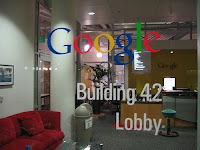
Many amateur salespeople spend a lot of time and energy memorizing product features and benefits. What would you say if I suggested that this, in many cases, is a waste of your strategic sales planning time? Why? People with ultra-deep product knowledge, when engaged with customers, tend to spend a lot amount of time talking about their product…what it does, how it works, and why it's good for the customer. This invites objections, resistance and continuations from the customer.
The skilled salesperson spends time asking questions about the customer's problems - understanding how serious they are, and how important it may be to solve them. This line of engagement leads to follow on appointments, creates value for the customer, and, is strongly linked to sales success. When working in the account, a salesperson can be most effective behaving like a human search engine...a Google salesperson. Think about how Google works? Google uses a proprietary formula to "score" the relevancy of websites for each search query. The highest ranking or "most relevant" websites for a specific query are listed first in the search results. A Google salesperson knows the kinds of problems her products can solve and searches for the relevancy of the customer's problem in relation to her solutions. A Google salesperson's proprietary formula is found in the quality of the questions she asks. The Google salesperson asks insightful questions that - 1). Help her surface problems, 2). Help her prioritize them, and 3). Help her understand all the impacts these problems have on the prospects’ business. Once the Google salesperson finds a problem that the customer now believes is painful enough to solve, then and only then, does she bring in the marketing experts and sales engineers to help the customer understand all the benefits of her solution and seals the deal. Want to sell more? Ask questions, talk less, and listen more. Be a human search engine.
Good selling!



